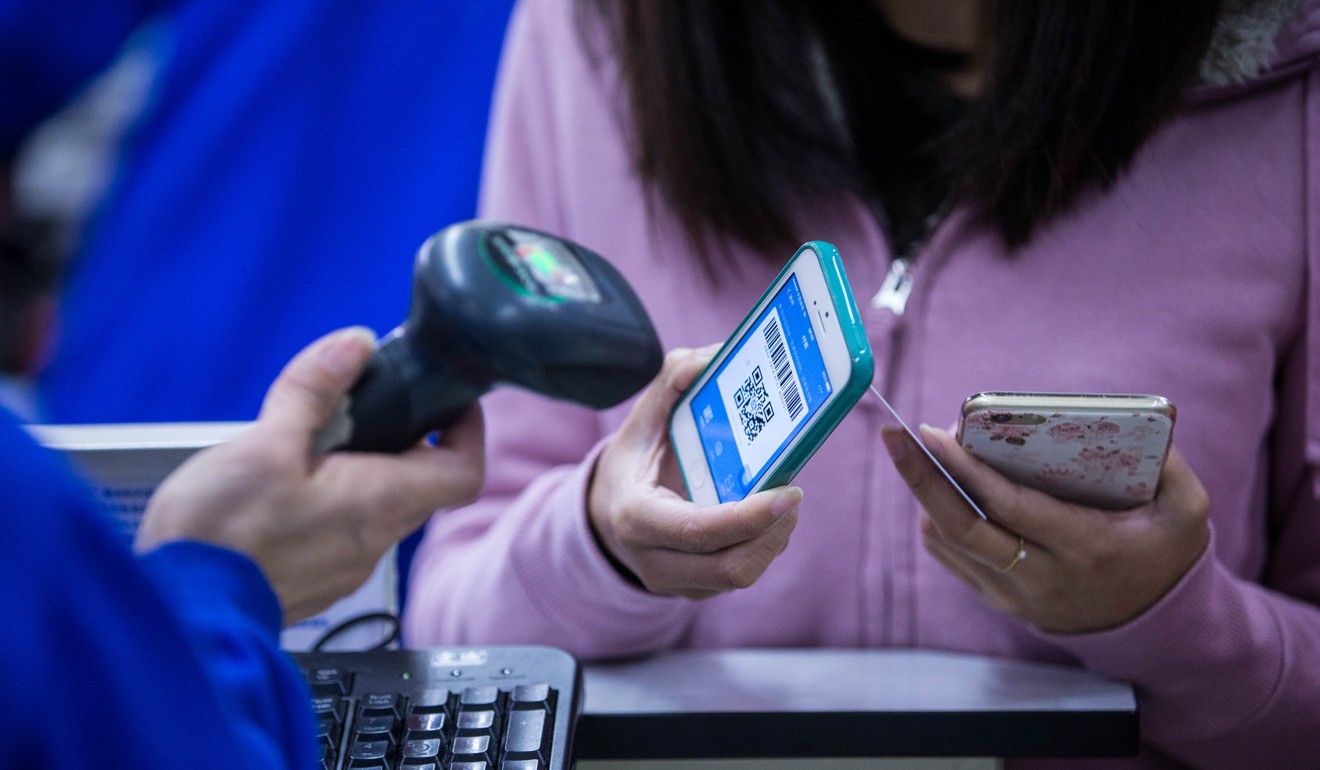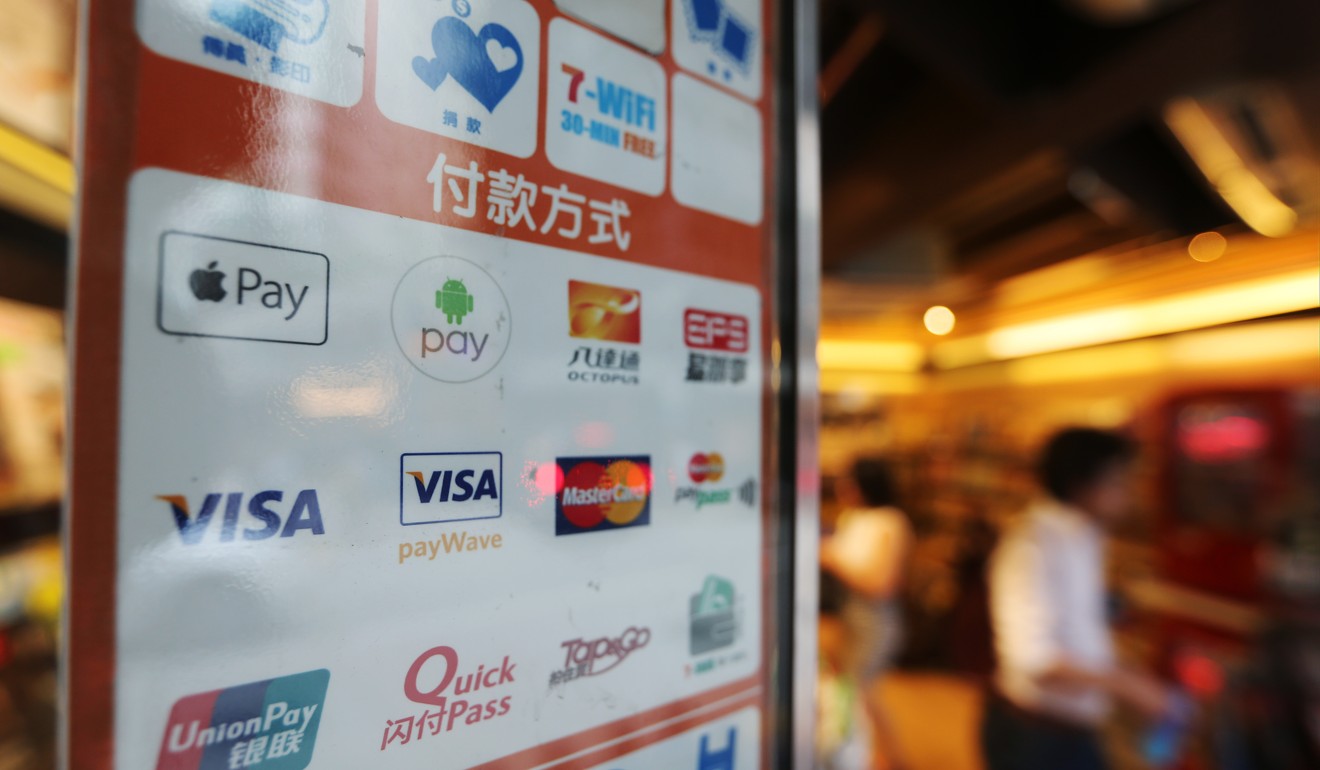
Hong Kong slow to go cashless? Blame success of Octopus card, minister says
Commerce chief Edward Yau says city stopped exploring new options after introduction of popular payment system for public transport
Hong Kong is lagging behind mainland China in becoming a cashless society because the city’s first such payment option, the contactless Octopus card, was so successful that the city stopped exploring more options, Secretary for Commerce and Economic Development Edward Yau Tang-wah has said.
Speaking to the Post, the minister said Hongkongers should be receptive to technology, but the government cannot simply “dictate” that they use e-payment.
Tourists to Hong Kong want new draws, not shopping malls, says commerce chief as industry emerges from ‘bottom of trough’
“I think that for sure, that’s an area Hong Kong has already lagged behind in terms of technology,” Yau said when asked if he could see the city going cashless like the mainland has.
“You can say that we are the victim of our own success, having the Octopus so well developed, and therefore we’ll not be able to pick up the latest technology.”

The Hong Kong government owns about 75 per cent of the MTR Corporation, which is the majority shareholder of Octopus Holdings.
The Octopus card has spread its tentacles to other areas, being used at supermarkets, convenience stores, restaurants and car parks, and for security access to homes, schools and offices.
But compared to cashless payment options popular on the mainland such as WeChat Pay and Alipay, IT expert Francis Fong Po-kiu said the Octopus card’s drawback is that it does not let customers pay with their phones by scanning bar codes, which are usually printed on a card.
Shops allowing customers to use Octopus for payment need to install a device for this purpose, which is not convenient, Fong said.
Hong Kong still the gateway to mainland China for foreign companies, commerce chief says

“The challenge we face [in] e-commerce or e-payment is that Hong Kong is a tiny market with a small population. We simply do not have that scale of economy compared to, say, the United States, or in the past, the European Union [...] or mainland China,” Yau said.
“So the challenge is, as a small city, do we just follow some others’ technologies, or are we able to pick something that can lead the market?”
1.2 million first-generation Octopus cards to expire by 2019, as they are not compatible with smartphone app
Hong Kong’s mobile and electronic payment transactions are expected to expand to US$529 million this year, according to data from online portal Statista. But that is less than 0.5 per cent of China’s transactions, estimated at US$138 billion.
It was only in August last year that the Hong Kong Monetary Authority granted the first batch of licences to five stored-value service providers in a move to regulate the city’s expanding electronic payment businesses.
So far it has issued 13 licences, to services including Alipay Wallet, WeChat Pay, Hong Kong-based TNG Wallet and Tap & Go, run by PCCW’s HKT Group.

While Yau admitted that Hong Kong was lagging behind mainland China, he said he could not say if the government wanted to turn Hong Kong into a cashless city.
“Unfortunately that question cannot be answered by the government alone,” he said. “I am not sure whether we can say whether Hong Kong should or should not become a cashless society ... but we should be receptive to technology. We should embrace things that can facilitate the city in terms of convenience.”
Fong, honorary president of the Information Technology Federation, said it was absurd that Yau blamed the Octopus card for Hong Kong’s delay in adopting cashless technology.
A cashless society would destroy our privacy and freedom
“It was the government that has not been looking forward. The government has always relied on the four traditional pillars of economy only,” he said.
Those four pillars, considered key to the city’s economy, are trading and logistics, financial services, professional services and tourism.
The government had not done enough to support the IT industry in Hong Kong over the years, Fong added.
And he disagreed that cashless payments in Hong Kong had not been as popular as on the mainland because Hongkongers refused to try new options.
“Hong Kong people have high adaptability. Just look at how often they buy new smartphones,” he said.

